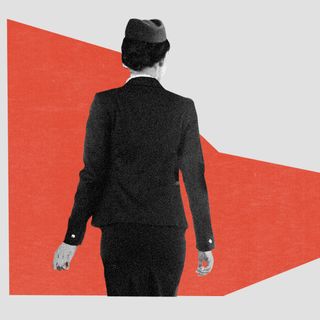
Inclusive Christmas Rom‑Coms Are Proof We Can Indulge in Nostalgia Without Being Bigoted
Christmas rom-coms used to be predominantly white, heteronormative nostalgia trips. But more diversity in the genre stays true to its spirit — without excluding anyone.

Christmas rom-coms are an annual holiday tradition for thousands of people across the globe. For many, December is incomplete without a planned tour down the nostalgic lane — involving rewatches of The Holiday (2006), Love, Actually (2003), Serendipity (2001), and Bridget Jones’s Diary (2001), among others.
“Th[e] plots [of holiday rom-coms] are soothingly predictable… It is set in a mostly white and vaguely upper-class town; it is by turns campy and self-serious; its plot is propelled by the notion that a skewed world might be righted — stranged couples reconciled, professional setbacks overcome, joys reclaimed — through the magic of Christmas,” Megan Garber wrote in The Atlantic. Indeed, the joy of rewatching a holiday rom-com is, perhaps, comparable to that of snuggling under a soft blanket in the winter, with a piping hot cup of gur waali chai in hand. Rom-coms are, basically, heavily concentrated shots of nostalgia.
Yet, for decades, the seasonal movie industry in Hollywood has excluded marginalized communities, with barely any representation of marginalized populations — almost erasing passionate, blossoming romances between non-white, non-heteronormative couples from cinema’s narrative of love. In recent years, though, change has been underway within the genre of Christmas rom-coms. Even more recently, the success of movies like Happiest Season (2020), Christmas Ever After (2020), and Single All The Way (2021) — both featuring queer couples in the lead — have cemented the foothold of inclusive cinema in seasonal productions.
“This is a big deal,” author Joanna Wilson, who is regarded as an expert on holiday entertainment had told The New York Times in 2020. “Queer people have been bosses and co-workers and siblings of the main characters. Being the central romance is very exciting and comes not a moment too soon.”
Besides paving the path for diverse representation, the success of inclusive Christmas rom-coms also serves as a reminder that we can indulge in nostalgia while adapting to the present. In other words, nostalgia can’t be an excuse for exclusions rooted in historical privileges. In fact, bigotry contradicts the overarching message of kindness, cheer, togetherness, and love — exposing the latent hypocrisy in arguments favoring the maintenance of the status quo for the sake of nostalgia. Yet, such arguments are far too common — not just in the context of holiday rom-coms, but also remakes of nostalgia-inducing classics and, of course, fantasy fiction.
Related on The Swaddle:
How Pop Culture Paints an Unhealthy, Unsustainable Picture of Friendships
Recently, the casting of actors of color in Rings of Power — inspired by the fictional universe in J.R.R.’s Tolkien’s The Lord of the Rings — drewracist backlash, in a series of incidents that were described by Vice as: “Racists are mad about a black people being in a show where elves are real.” The universe, as imagined by Tolkien, was drenched in prejudices: “[T]he forces of ‘good’ in Middle-earth are fair-skinned, while forces of ‘evil’ are dark; Orcs are ‘slant-eyed, swarthy and sallow-skinned’; the ‘heroes’ are all white-skinned,” notes an article.
The question of whether or not to stay true to the original imagination has a simple answer: no; it’s hardly an ethical dilemma. “The criticism backed by a purported loyalty to the source material is a red herring, a conduit to displaying more hate and giving oxygen to racism and sexism in the name of pledging allegiance to Tolkien’s fantasy world,” Saumya Kalia had argued in The Swaddle.
There’s a similar sentiment at play with Christmas movies. Yet, the bigotry inherent in the argument often presents itself as a mere endeavor to indulge in nostalgia. “It reaches back to a misplaced imaginary nostalgia for a golden age when everyone was in their place and, most importantly, they were happy to be there. A number of extremely talented writers, artists, poets, [and] musicians picked up on this nostalgia and created wonderful works of art that are nonetheless steeped in this highly colonialist, highly racist culture and ideology,” Kavita Mudan Finn, a first-generation Indian American and an interdisciplinary scholar of medieval and early modern European history, had told The Guardian.
Granted, at times, it might genuinely feel like proponents of the nostalgia argument are indeed defending it for the sake of an unadulterated reimagining of their childhood — to transport themselves, for an hour or two, to the simpler, lighter days that could relieve them of the angst of being an adult in today’s world. After all, that’s precisely why we watch Christmas rom-coms.
“A big part of the appeal of the rom-com is that it usually follows a predictable formula. Unlike in life, you know exactly what to expect in a rom-com, and there are no surprises. Sometimes, when you want to turn off your brain and just relax, getting thrown off by a plot twist that is not entirely pleasurable can take away from the experience,” writes Aditi Subramaniam, who holds a Ph.D. in neuroscience. “[T]here’s an element of magic embedded into the story. For those of us who find it hard to believe in the supernatural when we are older, it is nice to watch the occasional movie that takes us back to our childhoods and simpler times when we believed Santa would actually come down the chimney to leave us presents.” In short, rom-coms are comforting.
Related on The Swaddle:
Netflix’s Wednesday Is a Lesson in Paying Homage While Adapting to the Times
Be that as it may: the push for inclusivity in cinema doesn’t necessitate the absolute obliteration of movies from the past. And so, the nostalgia is truly a front for bigotry — and any nostalgic elements therein simply point to a longing for times when one could be openly racist, sexist, homophobic, and every other kind of bigot.
Commenting on the misogynistic agenda-driven backlash directed at Ghostbusters (2016) for its all-female lead cast, an article contends, “[I]t highlights the darker side of nostalgia, and the reason it is often weaponized by bigots… many of those men responsible [for the sustained social media campaign against the movie] used nostalgia as an excuse. These individuals regularly cited their absolute adoration of the original films as justification for their ‘defense’ of the brand against what they viewed as unnecessary changes — because, in their view, Ghostbusters can only be Ghostbusters when they are men.”
It continues, “These men love the nostalgia this film evokes because it reflects their own attitudes, which are as frozen in time as those celluloid images. Those particular ‘fans’ of the original Ghostbusters have a ‘sentimental longing or wistful affection’ for that time, in 1984, when they were children or teens, and the world was simple, and they could laugh at misogynist jokes without being called out for their bigotry and hatefulness. They could enjoy their regressive, oppressive thoughts without fear of consequence or repercussion. They could live their privilege and entitlement, without any concern for others.” This is true of people who are staunchly against the evolution of holiday rom-coms toward diverse representation, too.
However — hopefully, as a norm, and not the occasional Christmas miracle — inclusivity in Christmas rom-coms will continue to rise. Their success stands as sustained proof of the fact that the nostalgic value of holiday cinema isn’t dependent on bigotry.
The spirit of Christmas calls for the warm, fuzzy feeling induced by rom-coms to be rooted in the love between people — no matter their sexuality, gender, or race.
Devrupa Rakshit is an Associate Editor at The Swaddle. She is a lawyer by education, a poet by accident, a painter by shaukh, and autistic by birth. You can find her on Instagram @devruparakshit.
Related


Is This Normal? ‘I Always Wake Up Embarrassed About Oversharing Every Time I Socialize’
